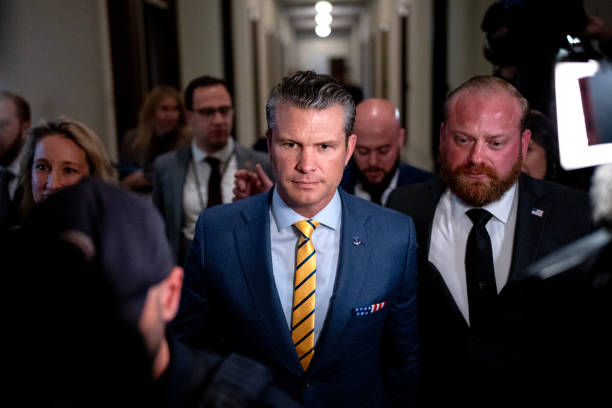
Five Takeaways from Pete Hegseth Confirmation Hearing
IndependentReport – January 9, 2025, Pete Hegseth, Donald Trump’s nominee for Secretary of Defense, faced a grueling confirmation hearing before the Senate Armed Services Committee. The four-hour session offered a window into Hegseth’s qualifications, character, and views. Despite facing tough questions, Hegseth seems poised for confirmation, thanks to strong Republican support.
Here are five critical takeaways from the Pete Hegseth confirmation hearing and what they mean for the Department of Defense’s future.
Hegseth, a decorated military veteran, opened his testimony by emphasizing a “warrior ethos.” He stressed his commitment to enhancing military readiness and maintaining strict standards.
“Warfighting, lethality, meritocracy, standards, and readiness—that’s it. That is my job,” he declared during his opening statement.
Hegseth also criticized initiatives aimed at promoting racial and gender equity in the military. According to him, such efforts hinder morale and efficiency. This stance sparked heated debates, particularly with Democratic senators, who questioned whether he could lead a diverse and inclusive military.
The Pete Hegseth confirmation hearing brought renewed focus to his controversial views on women in combat roles. Democratic senators, including Elizabeth Warren and Kirsten Gillibrand, questioned him over past remarks suggesting that women are not suited for combat.
Hegseth countered by stating that his concern lies in preserving military standards rather than excluding women. However, his tendency to interrupt questioning senators further heightened tensions, especially during an exchange with Warren.
The debate revealed a stark divide. Supporters view his stance as prioritizing military effectiveness, while critics see it as undermining gender equity.
At 44, Hegseth would be the youngest Secretary of Defense in decades. Critics questioned whether he has the experience needed to oversee the Pentagon’s massive operations, including a $849 billion budget and three million employees.
Hegseth described himself as a “change agent,” ready to disrupt Washington’s norms. Supporters like Senator Eric Schmitt praised his outsider status as a strength.
“I just want to say, for all the talk of experience, you are a breath of fresh air,” Schmitt said.
Still, concerns persist. Democratic senators pointed to financial mismanagement during Hegseth’s leadership at veterans’ organizations, raising doubts about his fiscal oversight capabilities.
READ MORE : Kebakaran Hollywood Hills: Ancaman Besar dan Evakuasi Massal
Hegseth’s character came under scrutiny during the Pete Hegseth confirmation hearing. Senators probed allegations of sexual assault, excessive drinking, and workplace misconduct. A 2017 accusation of sexual assault resurfaced, drawing sharp criticism.
Hegseth denied any wrongdoing, attributing the allegations to a “coordinated smear campaign.” At the same time, he invoked his Christian faith, stating, “I am not a perfect person, but redemption is real.”
This narrative, mixing claims of innocence with personal growth, led to more questions. Senator Tim Kaine challenged the contradictions in Hegseth’s responses, asking how he could claim both reformation and innocence.
While the hearing covered several personal and managerial issues, it lacked substantive discussion on military strategy. Hegseth briefly mentioned challenges like China’s rise and the war in Ukraine but offered little detail about his plans to address these critical issues.
Mara Karlin, a former Assistant Secretary of Defense, expressed concern over this gap, stating, “The bread and butter of what the secretary of defense does—protecting the nation and ensuring military readiness—was largely absent from this hearing.”
Senator Tammy Duckworth also highlighted his lack of international knowledge. She noted that Hegseth failed to answer basic questions about global alliances, further fueling doubts about his preparedness for the role.
Despite contentious moments, the Pete Hegseth confirmation appears on track. Key Republican senators, including Joni Ernst, have pledged their support.
If confirmed, Hegseth’s tenure could signal a significant shift in Pentagon priorities. His focus on traditional military values and rejection of diversity initiatives may reshape the department’s culture. However, questions about his qualifications and leadership style will likely persist.
The coming weeks will determine whether Hegseth can navigate these controversies and rise to the challenges of leading the Department of Defense.